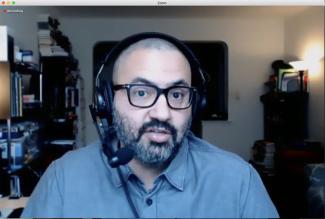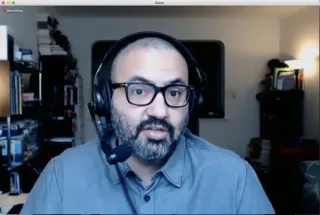When Ithaca College faculty members launched a virtual salon on the coronavirus crisis in April, they were surprised that more than 100 students, alumni, faculty, staff, researchers from other universities, and business owners logged onto Zoom to listen to a wide-ranging discussion on the pandemic.
In what was styled as a CNN-style town hall meeting, the global audience heard varying perspectives on COVID-19 that Friday morning, from its impact on widening inequalities in society to the long-held expectation among public health leaders that a deadly virus would overwhelm the world.
The salon featured a group of three faculty members who each presented a brief talk on a specific aspect of the pandemic and then answered questions from the audience. After attracting such a large audience, organizers decided to hold the event every Friday at 11 a.m. through the end of May. The fourth salon, which focused on crisis, elections, and politics, was held May 1 and featured Tom Shevory, professor of politics; Rodrigo Brandão '01, director of communications at The Intercept; and Zillah Eisenstein, professor emerita of politics.





